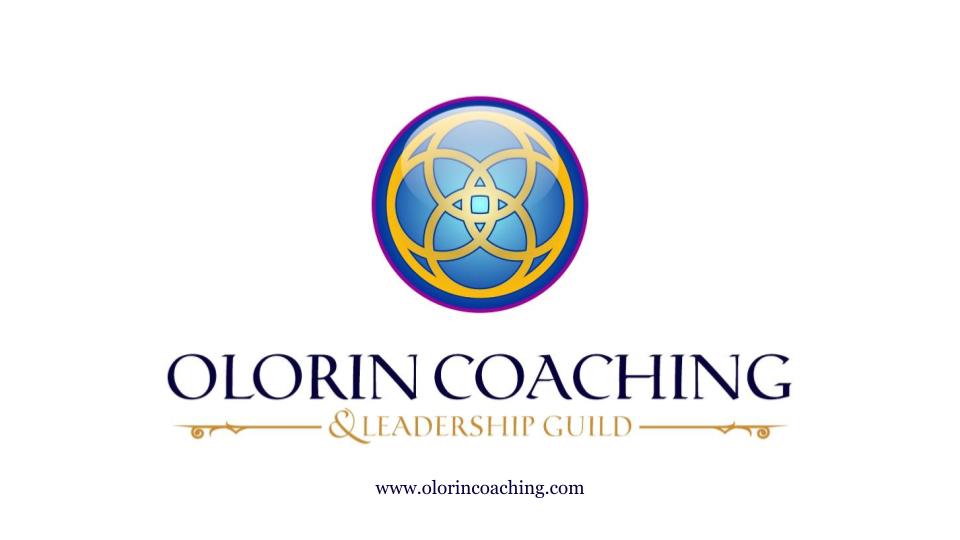
Leading Change: Innovative Strategies for Executive Success
![]() Donald Stevens
Donald Stevens
![]() May 29, 2024
May 29, 2024
Mastering the ability to navigate change is not only essential but also a defining characteristic of effective leadership. As businesses undergo transformation, it is crucial for leaders to skillfully guide their teams, ensuring they remain united, driven, and on track. The latest literature provides advanced strategies for effectively managing organizational change, particularly at the intersection of team leadership and executive communication. Let's explore best practices and innovative strategies that empower leaders to effectively guide their organizations through change. To successfully lead organizational change, it's essential to understand how your team works and how the organization functions as a whole. Leaders need to be aware of and address the emotional and psychological impacts of change on their team members. Effective communication is key to managing these impacts and keeping everyone aligned and motivated. 1. Leveraging Transformational Leadership Transformational leadership is crucial during times of change. Transformational leaders inspire and motivate their teams by creating a compelling vision for the future and encouraging innovation. Research shows that transformational leadership increases team member's work engagement and positive perceptions of change, leading to better support for organizational initiatives. 2. Developing Social Intelligence Social intelligence, the ability to understand and manage interpersonal relationships, is critical for leaders during organizational change. Leaders with high social intelligence can better understand team members' attitudes and emotions, reducing resistance to change. Enhancing social intelligence within the team promotes a harmonious and collaborative work environment, which is essential for navigating transition. 3. Encouraging Cross-Functional Collaboration Effective change management requires breaking down silos and promoting cross-functional collaboration. Leaders should facilitate regular interactions between different teams and departments to ensure a seamless flow of information and ideas. This approach helps in building a unified effort toward achieving organizational goals. 4. Enhancing Transparency and Trust Transparent communication is fundamental to building trust and reducing resistance during organizational change. Leaders must maintain open and honest communication, providing regular updates and addressing concerns promptly. This transparency helps in building a supportive and trusting organizational culture. 5. Developing Empathetic Communication Charismatic and empathetic communication can significantly impact team member engagement and support for change initiatives. Leaders should use storytelling to make the vision relatable and compelling. Additionally, empathetic communication- understanding and addressing the emotional needs of team members- can foster a supportive environment that mitigates resistance to change. 6. Utilizing Agile Communication Practices Adopting agile communication practices helps in keeping the organization responsive and adaptable. Agile methodologies emphasize iterative planning, continuous feedback, and flexibility, allowing leaders to quickly address emerging challenges and opportunities during transition. 7. Fostering a Culture of Mindfulness Mindfulness practices enhance team focus and collective awareness, which are crucial for effective performance during change. Leaders can implement regular check-ins and mindfulness exercises to promote a cohesive and focused team environment. 8. Balancing Exploration and Exploitation Successful organizations balance the need to explore new opportunities with exploiting existing capabilities. Leaders should encourage their teams to innovate while maintaining operational efficiency. This balance ensures long-term sustainability and adaptability in a dynamic business environment. 9. Using Vivid Communication Effective communication can be significantly enhanced through vivid language and imagery. Research indicates that vivid communication, which includes emotionally engaging and concrete language, can make messages more memorable and impactful. Leaders who use vivid communication can better capture their team's attention and inspire action. Navigating organizational change effectively requires a blend of transformational leadership, social intelligence, continuous learning, transparent communication, and vivid language. By embracing these strategies, leaders can build resilient, adaptable teams capable of thriving in times of transition. These approaches address critical challenges and drive substantial value, steering the organization toward a successful future. Ready to guide your organization through its next transition? Contact me to discover how executive coaching can empower you to master change effectively for personal and professional growth. Let's collaborate to transform obstacles into opportunities and propel your organization toward a prosperous future. Bouckenooghe, D., Schwarz, G. M., Sanders, K., & Nguyen, P. T. (2023). The multiple faces of collective responses to organizational change: Taking stock and moving forward. Journal of Organizational Behavior, 44(7), 997-1014. https://doi.org/10.1002/job.2738 Brunzel, J., & von der Oelsnitz, D. (2022). "I have a dream" the vividness effect in international business communication. Corporate Communications, 27(1), 34-52. https://doi.org/10.1108/CCIJ-02-2021-0017 Faupel, S., & S, S. (2019). The effect of transformational leadership on employees during organizational change - an empirical analysis. Journal of Change Management, 19(3), 145-166. https://doi.org/10.1080/14697017.2018.1447006 Goswami, M. (2020). Developing social intelligence among employees for effectively managing organizational change. Development and Learning in Organizations, 34(4), 13-15. https://doi.org/10.1108/DLO-01-2019-0010 Hubbart, J. A. (2023). Organizational change: The challenge of change aversion. Administrative Sciences, 13(7), 1-9. https://doi.org/10.3390/admsci13070162 Xing, Y., Liu, Y., Boojihawon, D. K., & Tarba, S. (2020). Entrepreneurial team and strategic agility: A conceptual framework and research agenda. Human Resource Management Review, 30(1), 100696. https://doi.org/10.1016/j.hrmr.2019.100696Understanding the Dynamics of Change
Strategies for Leading and Managing Teams Effectively
Effective Communication Strategies at the Executive Level
Building a Resilient and Adaptable Organization
The Path Forward
Call to Action
References

Recent Articles
Transformative Leadership: Harnessing the Power of a Leadership Coach
Understanding the Role of a Le...
![]() Apr 23, 2024
Apr 23, 2024
Navigating Career Transitions: The Role of a Career Transition Coach
Understanding the Need for Car...
![]() Apr 21, 2024
Apr 21, 2024
Navigating Growth: Your Path to Personal Fulfilment with a Personal Growth Coach
Understanding Personal Growth ...
![]() Apr 22, 2024
Apr 22, 2024
The Ultimate Guide to Executive Coaching: Unlocking Your Leadership Potential
Understanding Executive Coachi...
![]() Apr 19, 2024
Apr 19, 2024
The Leadership Advantage: Strategies and Insights from Leadership Coaching
Understanding Leadership Coach...
![]() Apr 18, 2024
Apr 18, 2024
Navigating Career Transitions: A Comprehensive Guide to Career Transition Coaching
Understanding Career Transitio...
![]() Apr 17, 2024
Apr 17, 2024
Empower Your Journey: Personal Growth Coaching Unveiled
Understanding Personal Growth ...
![]() Apr 16, 2024
Apr 16, 2024
Leadership Development Unveiled: Essential Strategies for Growth and Impact
Understanding Leadership Devel...
![]() Apr 15, 2024
Apr 15, 2024
Achieving Excellence: The Power of Leadership Development Programs
Understanding Leadership Devel...
![]() Apr 20, 2024
Apr 20, 2024
Navigating Career Transitions: A Guide to Career Change Coaching
Understanding the Need for Car...
![]() Apr 13, 2024
Apr 13, 2024
Career Development Coaching Demystified: Your Pathway to Success
Understanding Career Developme...
![]() Apr 12, 2024
Apr 12, 2024
Mastering Career Transitions: Your Comprehensive Guide to Success
Understanding Career Transitio...
![]() Apr 11, 2024
Apr 11, 2024
Unlocking Your Potential: A Comprehensive Guide to Personal Development Coaching
Understanding Personal Develop...
![]() Apr 10, 2024
Apr 10, 2024
Mastering Leadership: The Executive Coach's Guide to Professional Growth
What is an Executive Coach?An ...
![]() Apr 14, 2024
Apr 14, 2024
Unleashing Success: A Comprehensive Guide to Goal-Oriented Coaching
Understanding Goal-Oriented Co...
![]() Apr 09, 2024
Apr 09, 2024
The Power of Transformational Coaching: Unlocking Your Full Potential
What is Transformational Coach...
![]() Apr 08, 2024
Apr 08, 2024
Empower Your Leadership Journey: Unlocking Skills Development
Understanding Leadership Skill...
![]() Apr 07, 2024
Apr 07, 2024
Unveiling the Power of Executive Leadership Programs: A Comprehensive Guide
Understanding Executive Leader...
![]() Apr 06, 2024
Apr 06, 2024
Building Stronger Leaders: Strategies for Effective Corporate Leadership Development
Understanding Corporate Leader...
![]() Apr 05, 2024
Apr 05, 2024
Empowering Your Journey: Harnessing Career Growth Coaching for Success
Understanding Career Growth Co...
![]() Apr 04, 2024
Apr 04, 2024
Career Advancement Unleashed: Your Path to Professional Excellence
Understanding Career Advanceme...
![]() Apr 03, 2024
Apr 03, 2024
Maximising Your Potential: A Comprehensive Guide to Career Coaching
Understanding Career CoachingC...
![]() Apr 02, 2024
Apr 02, 2024
Discover Your Best Self: The Magic of Self-Improvement Coaching
Understanding Self-Improvement...
![]() Apr 01, 2024
Apr 01, 2024
Embrace Change: Harnessing the Power of Personal Transformation Coaching
Understanding Personal Transfo...
![]() Mar 31, 2024
Mar 31, 2024
